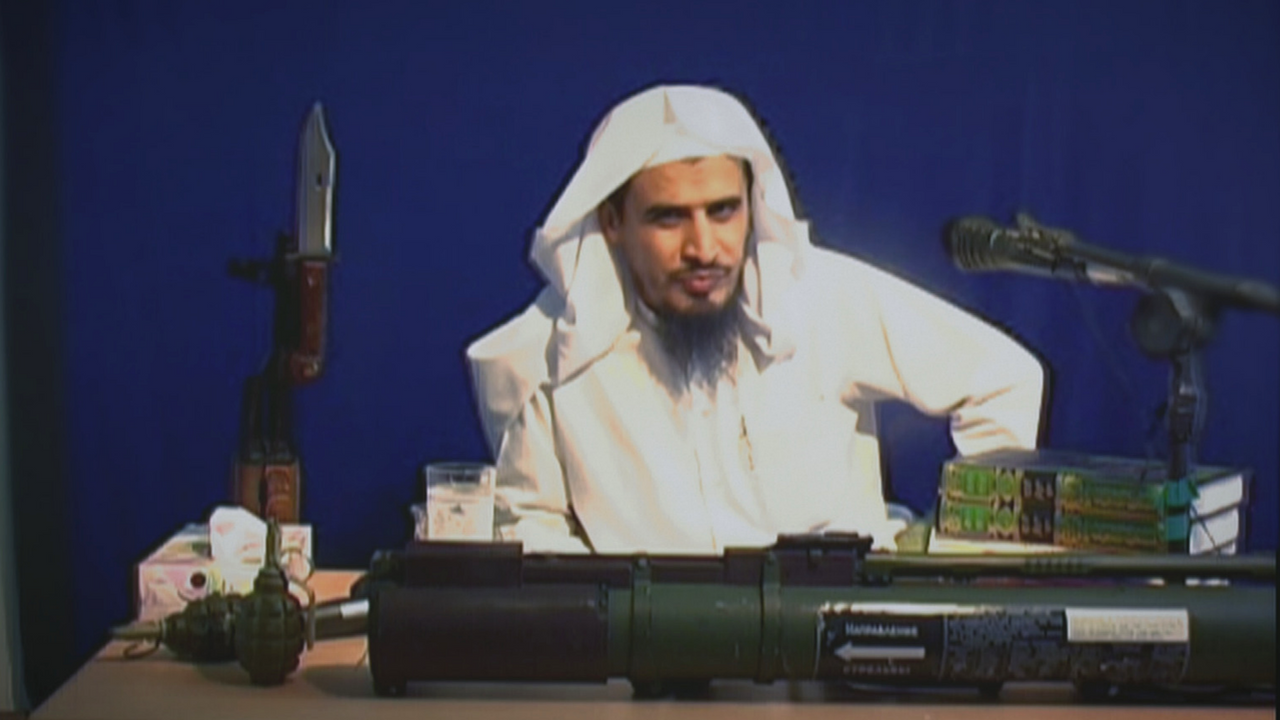Thursday, 19 July 2018
Video nasties: "Path of Blood"
Here's a found-footage movie of a more starkly disturbing kind. The footage from which the documentary Path of Blood is constructed was taken in this century's first years by Al-Qaeda operatives and the Saudi security forces on their tail, and by piecing it together, the filmmaker Jonathan Hacker can reveal something of the fundamentalist mindset: what drives human beings to such extremes that they would consider taking their own lives, and the lives of many others, in the name of religion. Surprisingly - yet tellingly - much of what we see is indistinguishable from any of the other content contemporary teens and twentysomethings upload to Instagram or Facebook, the handiwork of kids messing around while testing their own limits. In a pre-credits sequence, we watch one bearded youngster attempting to record a martyrdom video - those documents prerecorded by jihadists and released to the media after atrocities in the hope it will further their cause - only to collapse in mirthful hysterics upon repeatedly fluffing his lines. Footage from a training camp turns up images of blithe wheelbarrow races; a bomb test gains a farcical aspect after somebody's trousers fall down while running away from the blast. Here, perhaps, are the origins of Chris Morris's satire Four Lions - a process of self-documenting that shows not just Al-Qaeda's inner workings, but also its youthful adherents' goofing off. The point - and it's a powerful one for any public communication to raise at a moment when the aggressively othering Tommy Robinson and Steve Bannon are holding sway - is that the people at the centre of these frames aren't so very far removed from you or I; the one major difference is that they have mass murder on their mind.
Beyond that, we witness a clash of words and images. There is the footage sourced from the jihadists, pushing their case, and their sporadic victories, in these grandiose martyrdom speeches and flowery Voice of Jihad bulletins that try ever so hard to justify the bloodshed; and there is the surveillance and crime scene footage taken by Saudi security, who - as Hacker's excellent 2014 book of the same name outlined - were unusually adept when it came to countering and quashing the fundamentalist threat. (All the riches in the world does, in the end, give you greater security.) The two factions occasionally intersect in terse handycammed standoffs: there are raids and shootouts, vital, intense interrogations, and finally an outlandish assassination plot intended to blow off the head of the Saudi intelligence forces. Put back to back and watched in a cinema, such images place the viewer squarely in heady thriller territory, except that these strikes and counterstrikes resulted in actual bodies (and body parts) hitting the ground at regular intervals. Hacker, I think rightly, doesn't shy away from showing us the jihadists' methods, and the consequences of their actions, although he also has the sensitivity to cut away from one cell's vicious manhandling of one petrified American hostage at the exact point the group's brutality has become perfectly clear. It is the film's subjects who cross lines in the sand; the editorial never does. Besides, Path of Blood accumulates charge enough from its contrast between the lively and larkish jihadists we see with their guard down, and the charred or doll-like corpses some leave behind: all that would-be insurrectionary energy, gone to no good end.
Clearly, there were those in the jihadists' ranks who got a kick out of their thuggery, and the opportunity this moment afforded to build their own private army of followers. Yet careful study of this footage reveals that extremism is, more often than not, a pose, a performance of varying sincerity pleading for an audience of some description. At best, it is a phase to be grown out of, as countless stories attest: the film's subjects are not untypically young, marginalised, disaffected males who've adopted the nihilist credo that if the world doesn't work for them, it shouldn't be allowed to work for anybody else. Build up the theatre around them, however - as Hitler did from Nuremberg onwards, as the Al-Qaeda leadership did to a lesser extent in the Middle East, as the Barron-Farage cabal is attempting to today in the West - and you risk giving the performance far greater credibility: enough to lure in the credulous, the gullible and the simply unthinking, even as they themselves remain unsure as to what ultimately lies in store for them. It is, as Hacker's prologue establishes, all fun and games until people - perhaps even you yourself - get hurt. Path of Blood therefore arrives at the highest and most visible bodycount of any commercially released feature so far in 2018: it earns its 18 certificate, and a wince every five minutes on average. Yet at a moment in which the very idea of enlightened civilisation finds itself under attack not just from religious nuts but snivelling, sexless palefaces, Hacker's thoroughly considered and responsible assemblage makes for urgent, serious, instructive viewing.
Path of Blood is now playing in cinemas nationwide.
Subscribe to:
Post Comments (Atom)

No comments:
Post a Comment